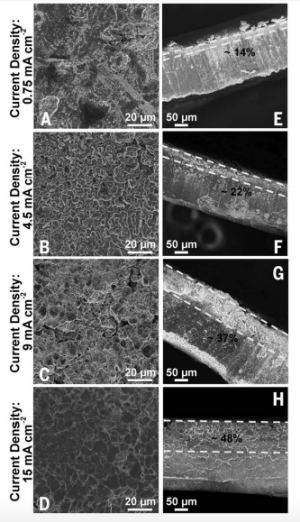Dendrites—branching structures that look like tree limbs—are fun to draw, good on neurons, but generally to be avoided in lithium-ion batteries. As ions are exchanged between the anode and cathode over several charge and discharge cycles, lithium electrodes will sometimes grow dendrites that can expand through the electrolyte that separates the anode and cathode. These dendrites can reduce the battery's capacity, shorten the life of the battery, or even start fires as the dendrites heat up. (Dendrites were found in the batteries related to the Boeing 787 battery fires that happened in 2014, for example.)
But researchers from Rensselaer Polytechnic Institute in Troy, New York, have proposed a way to ameliorate this dendrite growth. They've done this not by fighting against the dendrites and trying to contain them (as many researchers have attempted), but by using the tendency of dendrites to heat up in response to high current density to make those electrode growths smaller.
By applying a high-current pulse to a lithium-metal anode, the researchers were able to produce heat that wasn't enough to melt the lithium metal but was enough to encourage "extensive surface migration" of the lithium atoms. That essentially "healed" the lithium-metal anode of newly-growing dendrites, which smoothed out the surface of the lithium anode again.

No comments:
Post a Comment